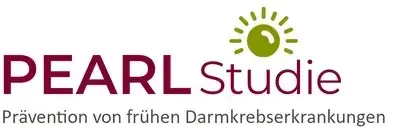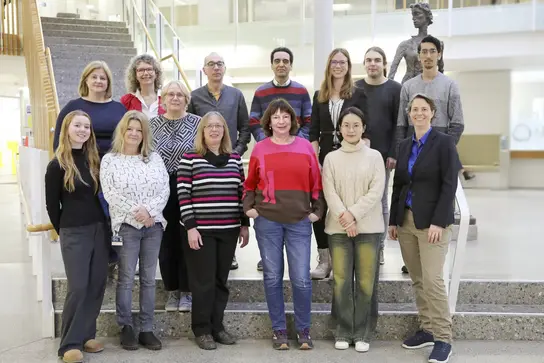Primary Cancer Prevention
- Cancer Risk Factors and Prevention

Prof. Dr. Ute Mons
Our mission is to develop new strategies to reduce cancer risk factors in the population, optimize their implementation and evaluate their effectiveness.

Our Research
Our interdisciplinary team is particularly dedicated to the development and evaluation of innovative strategies to reduce cancer risk factors in the population. Our research is embedded in the National Cancer Prevention Center. In our work, we focus on three central approaches:
Population-based approaches: Here we investigate how population-based interventions, such as policy measures or health campaigns, influence the behavior of individuals and impact public health. We use simulation models to evaluate the preventive potential of population-based interventions in relation to cancer risk factors such as tobacco and alcohol consumption.
Targeted approaches: We develop and test innovative concepts that are tailored to specific target groups or settings. We also aim to better integrate prevention services into the healthcare system, for example through low-threshold behavioral support.
Personalized approaches: Our research aims to precisely identify individual risk profiles and develop risk-adapted or personalized prevention strategies. Such approaches can be offered in cooperation with the prevention outpatient clinic of the National Cancer Prevention Center, to reduce the individual risk of cancer.
With a strong focus on the actual implementation of measures, we aim to bring scientific findings into practice faster. Our goal is to establish effective, evidence-based prevention strategies that sustainably prevent cancer and promote population health. Our research combines scientific excellence with practical and political relevance to generate research data and evidence that can serve as a basis for political decision-making.
Our Studies

The PEARL project is a large collaborative project that specifically investigates the risk factors of colorectal cancer in the under-50 age group and uses the findings to develop new and effective strategies to better prevent colorectal cancer in young people in the future. Members of the division Primary Cancer Prevention are in particular working on two sub-projects that aim to integrate results from multidisciplinary epidemiological studies for the development of new primary and secondary prevention strategies for early-onset colorectal cancer, as well as to collect and utilize population-based data and biobanks of colorectal cancer patients below age 50.
Extensive research has linked over 60 diseases (comorbidities) to an increased risk of colorectal cancer. This project, undertaken within the Risk Adapted Prevention Group, utilizes the Swedish Family Cancer Database, one of the world's largest and most comprehensive of its kind. Our aim is to rigorously validate the association of each of these diseases with colorectal cancer risk.
Given the concerning rise in incidence of early-onset colorectal cancer (diagnosed before age 50), a primary objective of this project is to identify novel risk factors specifically for this aggressive form of cancer. Ultimately, this research will inform the development of risk-adapted (personalized) colorectal cancer screening strategies, including the optimal starting age and screening interval for individuals with elevated risk due to co-existing medical conditions
So far, diabetes mellites has been introduced as a new risk factor of early-onset colorectal cancer and a risk-adapted starting age of colorectal cancer screening in patients with diabetes has been provided, which should be about 5 years earlier than the general population.

The GEKKO study is a large-scale scientific study being conducted at the National Center for Tumor Diseases (NCT) in collaboration with gastroenterological cooperation partners in Heidelberg and the surrounding area and associated clinics such as the Surgery Center, Breast Center and Thorax Clinic. The aim of the study is to discover and evaluate new early detection tests that can be used to detect cancer and its precursors at an earlier stage, as the chances of curing most types of cancer are much better with early detection.

The LEO study is a large-scale scientific study conducted together with the Interdisciplinary Endoscopy Center Heidelberg (IEZ) of the Medical Clinic of Heidelberg University Hospital. The main aim of the study is to discover and evaluate new screening tests that can detect colorectal cancer and its precursors earlier, especially in young adults in the 30-49 age group.
Our Team
Our multidisciplinary team conducts population-based prevention studies with the aim of applying evidence-based and innovative research approaches to detect cancer and its precursors earlier and prevent them through targeted and personalized offers to the population.

-

Prof. Dr. Ute Mons
-
Angelika Bergmann
-
Konrad Bode
-
Birgit Ruth Brandstetter
-
Dr. Ulrike Bussas
-
Markus Eckstein
-
Dr. Mahdi Fallah
-
Yuqing Hu
-
Susanne Jakob
-
Ursula Klos
-
Ronja Lang
-
Jiaye Liu
-
Zauraiz Bin Azwer Lone
-
Dr. Petra Schrotz-King
-
Louisa Schön
-
Lydia Steiner
-
Ava Ryan Turzanski Fortner
-
Janine Wieser
Working Groups
Prof. Dr. Ute Mons heads the Primary Prevention Group in the Division of Primary Cancer Prevention. She was previously Professor of Cardiovascular Epidemiology of Ageing at the University of Cologne. Prior to that, she held several positions at the DKFZ, in the Cancer Prevention Unit and in the Department of Clinical Epidemiology and Aging Research. Ute Mons is a sociologist, epidemiologist and public health scientist.
The Primary Prevention Group is concerned with the investigation of potentially modifiable cancer risk factors and the development and evaluation of strategies and measures to reduce the prevalence of these cancer risk factors in the population. For example, we investigate which factors influence behavioral cancer risk factors at the individual level and what impact this has at the population level. Simulation models are used to estimate the long-term potential of prevention measures.
In addition, the Primary Prevention Group develops and evaluates approaches to cancer prevention which are specifically tailored to the reduction of cancer risk factors in certain target groups or environments, or which are personalized to individual risk profiles.
Dr. Petra Schrotz-King heads the Prevention Studies Group in the Division of Primary Cancer Prevention, which focuses on cancer risk factors, early detection of cancer and the translation of research results into the population. Previously, she worked at the Medical Faculty Mannheim at the University of Heidelberg, as scientific director (CSO) at ACE Biosciences in Denmark and as assistant professor at the University of Southern Denmark, Odense.
The multidisciplinary team establishes population-based prevention studies. These aim to detect cancer and its precursors earlier using evidence-based data, e.g., information on cancer risk factors and biomarker analyses, for example from blood or stool samples, through innovative research approaches in the laboratory or by calculating risk profiles, and to prevent them through targeted personalized offers to the population.
One example of this is the discovery and evaluation of new early detection tests and their implementation in the healthcare system. In addition, the integration of samples and data creates a platform for national and international collaboration in a wide range of research areas and thus the prerequisite for the effective use of study resources, a strengthening of networks in prevention research, as well as the translation of research results in the form of personalized prevention offers to the population.
The studies are made possible by the committed study participants (each individual is important) and by committed practices and clinics.
Mahdi Fallah, MD, PhD, leads the Risk Adapted Prevention (RAD) Group within the Division of Primary Cancer Prevention. He holds a visiting professorship at the Department of Clinical Sciences, Lund University, Malmö, Sweden. Previously, he served as Professor of Medicine (Epidemiology) at the University of Bergen, Norway, and Adjunct Professor at the Institute of Primary Health Care (BIHAM), University of Bern, Switzerland. His research is dedicated to risk-adapted cancer prevention.
The Risk Adapted Prevention (RAD) Group focuses on identifying individuals at elevated risk for common cancers, including prostate, breast, and colorectal cancer, to optimize screening strategies for them. Their primary objective is to develop and validate robust risk-adapted models that determine the optimal starting age and screening interval for cancer screening. These models will incorporate a comprehensive range of individual risk factors, including family history of cancer, personal medical history, medication use, race/ethnicity, socioeconomic status, and other relevant factors. The disparities in cancer incidence and mortality across different racial and ethnic groups are acknowledged by incorporating factors that may disproportionately affect certain populations. By tailoring screening recommendations to specific patient populations, the RAD Group aims to significantly enhance cancer prevention and early detection in a risk-adapted (personalized), equitable, and cost-effective manner.
Selected Publications
Brinker, T.; Krieghoff-Henning, E. I.; Suhre, J. L.; Silchmüller, M. P.; Divizieva, E.; Wilhelm, J.; Hillebrand, G.; Haney, A. C.; Srivastava, A.; Haney, C. M.; Seeger, W.; Penka, D.; Gall, H.; Gaim, B.; Glisic, L.; Stark, T.; Swoboda, S. M.; Baumermann, S.; Brieske, C. M.; Jakob, L.; Fahrner, H. M.; Anhuef, O.; Schmidt, S. M.; Alfitian, J.; Taha, L.; Beißwenger, H.; Groneberg, D. A.; Thomas, R. E.; Fröhling, S.; von Kalle, C.; Baudson, T. G.; Buslaff, F.; Mons, U.
Liang, Q.; Mukama, T.; Sundquist, K.; Sundquist, J.; Brenner, H.; Kharazmi, E.; Fallah, M.
Raut, J.; Schöttker, B.; Holleczek, B.; Guo, F.; Bhardwaj, M.; Miah, K.; Schrotz-King, P.; Brenner, H.
Previous Publications
Get in touch with us
